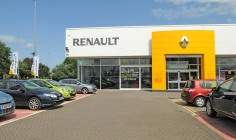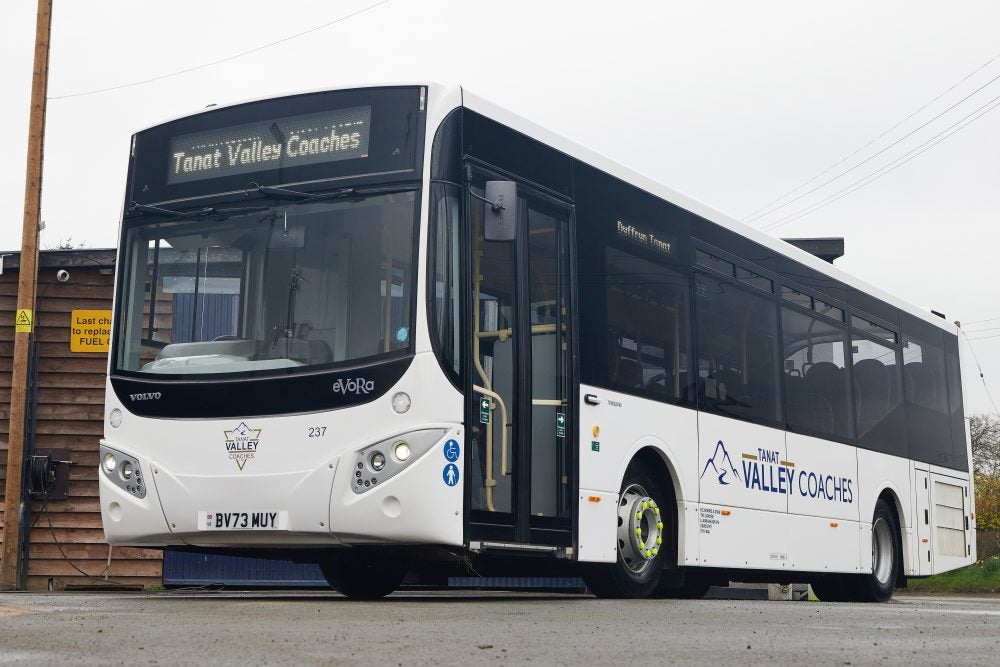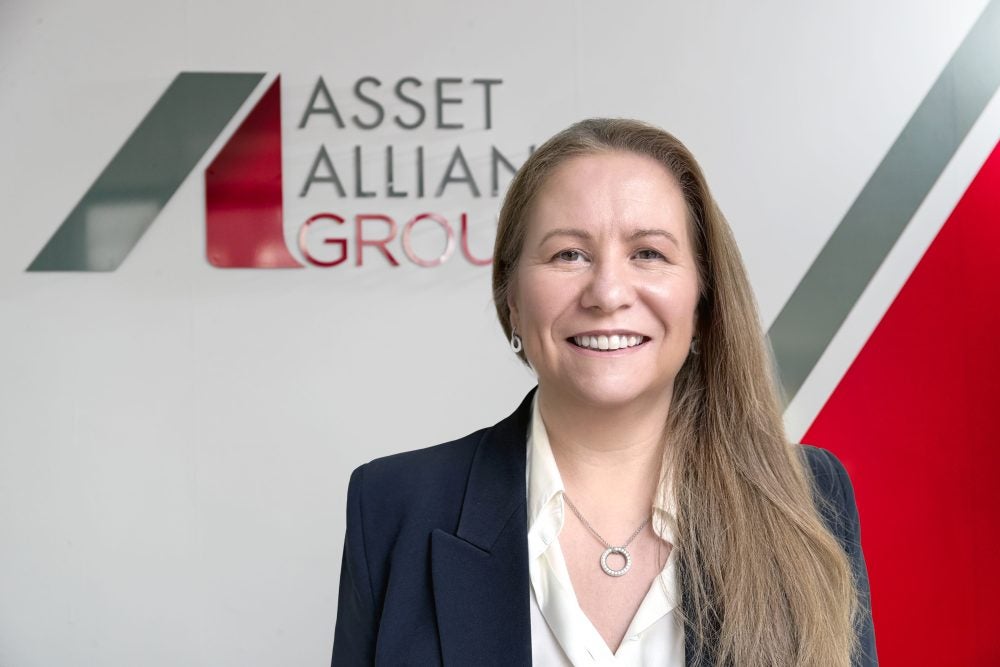
Steve Gowler, managing director at RCI Financial Services, took time out to talk to Mike Cobb about the year gone by and what the future holds for the Renault-owned finance company.
Fifteen years after it was founded the Renault Nissan Alliance continues to flourish. Global sales were over 8.2 billion units in 2013, and the company has a presence in every major market, including the US, where the Nissan and Infiniti brands in particular are strong.
Some of the reason for that success has been the ability of the car making alliance to offer a competitive finance product to its customers.
That provision comes from RCI Banque, a fully owned subsidiary of Renault headquartered in France which provides finance across the alliance including all of the Nissan, Infiniti, Lada, Renault and Dacia brands.
The UK division of RCI Banque, RCI Financial Services, has made a large contribution to the business and is one of the strongest markets for the finance company in terms of growth.
So Motor Finance spoke with the managing director of the UK business to see where RCI Financial Services are now, and what being part of the French group means to their business.
How was 2013 for RCI Financial Services?
So really if we look back on 2013, it was a good year in terms of progress in the business, so generally we moved forwards on all of our key indicators.
We finance more contracts than we did in 2012, and obviously that meant more financings in pound notes, its £900m or so. So we’re not far off the £1bn a year levels of retail financing. That’s just to end customers and in our plan this year we will exceed £1bn of financing.
How has the business been spread across the brands?
How well do you really know your competitors?
Access the most comprehensive Company Profiles on the market, powered by GlobalData. Save hours of research. Gain competitive edge.

Thank you!
Your download email will arrive shortly
Not ready to buy yet? Download a free sample
We are confident about the unique quality of our Company Profiles. However, we want you to make the most beneficial decision for your business, so we offer a free sample that you can download by submitting the below form
By GlobalDataWell it’s broadly about 60% Nissan, and 40% Renault/Dacia.
How did that break down further?
The Nissan business has been growing organically so their volume and market share grew last year, They are quite a successful brand now in the UK, they have got a couple of very strong models in the Qashqai and Juke which were basically the leaders in the sector, Qashqai in the C sector and Juke in the B sector.
With Nissan it’s been very solid growth, with a strong brand and good models. We’ve managed to grow our penetration as well into Nissan’s sales, we’ve good promotional schemes that work very well with them. As you can imagine, cars like Juke and Qashqai have strong residual values, they work very well on PCP. So you get competitive attractive monthly payments on those cars. So the predominant funding method really has been PCP.
What sort of penetration rates do you achieve with Nissan?
I don’t have all these figures but I think we ended up just below 30% penetration, but you have to bear in mind that’s penetration of all Nissan sales. So that would include all the fleet, and motability, which we don’t really penetrate. So if you look at our penetration into proper private retail sales, it more like around 60%, with a higher proportion of that on PCP.
And how was the Renault Brand for RCI?
Renault had a growth year as well last year, on the back of two things. One was the introduction of the Dacia brand, a completely new brand in the UK, which captured 1% of the market in its first year, which is very good. And Renault had some new models, they had a new Clio and they had a brand new car in the Captur. That car didn’t start sales until the summer, so they didn’t have the full year benefit of that, but it’s been a strong performer. And our penetration into Renault is a bit higher than Nissan. It’s about 33-34% and partly that’s just to do with the mix of sales. They did less fleet as a proportion of their sales than Nissan did but more retail, and our penetration into retail is at times pushing 70%, again with very strong promotional schemes, and PCP schemes.
And Dacia?
With Dacia, because its a different proposition as it’s a value or budget brand. The strategy there is not to have consumer offers but basically just to have a price with no discounting. Therefore we create our own offer through the dealer, without any support subsidies from the manufacturer. Obviously our penetration on Dacia brand isn’t as high as it is on Renault’s. It’s about 30%, but we are effectively competing head on with our competitors on that without any manufacturer subvention. But that brand has started well for us.
Any other areas of growth?
All of those things helped our growth, and we’re quite strong in used car activity as well. That was flat last year. We had some significant growth in 2012, and in 2013 It was flat, mainly because we pulled back from one or two large dealer groups in the second half of last year, because of the pricing position.
This year we will see some growth again in used cars, but we’ve had very strong performance on Nissan used cars where we have an interesting offer. Nissan has a branded used car programme, called ‘Cared4’ and as part of that programme if you finance a used car with Nissan Finance you get free servicing. That’s really pushed our volume of Nissan used car finance up significantly.
How different is the used car market for RCI?
Used car generally is more complex, because we are out there in the market, really competing head on with the Santanders and Black Horses. So in most cases, the used free servicing offer gives us good leverage. There are dealers who perhaps wouldn’t have dealt with us on used cars who have a big package with our competitors who would now give us that business because it’s now quasi scheme business.
There have been some changes at RCI lately, most notably the upcoming move to in house the contract hire business away from current suppliers Arval, why was that?
It was a strategic decision at the RCI Banque group level. A few years ago it was decided to outsource that activity and not just in the UK, but in all the countries except for France. There RCI has a very big contract hire company which competes head on with the multi brand contract hire companies. And at the time it was about issues over cost of funds, as it was just after the funding crisis. There were also issues around residual value risk and costs. So it was a pragmatic decision to outsource that business.
Now RCI is in a growth phase and wants to bring that activity back in house. Funding isn’t an issue any more, as it was in 2007 and 2008 and we feel that its business that we should manage ourselves. So in the UK and in Spain, RCI is working with Arval, and in other countries they are working with ALD. So it’s not a specific UK decision. So it’s part of the group’s Global strategy to grow in that particular business.
From our particular point of view, we’ve been quite happy with the relationship with Arval in the UK over the past four years. So it’s not reflective of any particular dissatisfaction with them, however, there will be some benefits of brining it in house. For example dealers will be able to use the same systems that they use for retail financing. The same systems and processes will be there for fleet as well. Whereas today they are using, one system with us for retail, and then something that is different with Arval for small fleet business.
What are the plans for RCI Financial Services into 2014 and 2015?
We are looking for growth. There is some organic growth, because the manufacturers are also seeing growth over the next couple of years, but we would also like to see our penetration into their sales grow as well.
One of the things that we are looking at is our interaction with our end customer so whilst we are clearly a business based upon the principal of working with dealers, and dealers are intermediaries with the customer obviously, we have a transactional relationship with our customer once they enter into a contract with us.
Part of our role as a manufacturer motor finance company is to bring customers back to the franchise, back to the dealers at the end of the contracts, but also I think its important to have a good relationship with our customers and one of the things we’re doing is developing a new customer website so that customers will be able to transact with us on a day to day basis without having to phone us between the hours of 9 and 5 Monday to Friday.
They can do certain things out of hours, such as getting a settlement figure and making payments over the telephone, but this would be a fully functioning site where they could do pretty much any transaction online 24 hours a day, 7 days a week.
Are there any other projects in the pipeline?
The other thing that we are just in the process of launching is our equity profiling system, where basically rather than having a programme of contact with the customers where just 6 months in from the end of the contract we write to them or call them, then do the same again three months later, we actually instigate contact with the customer at the, what you call the golden moment.
That’s the point where they go into positive equity, and in theory they are in a position where they could have a new car. So we go to those customers at that golden moment with a proposition.
Considering the UK market is doing well how much does this give you influence in what happens with the rest of RCI in Europe?
Well each country is autonomous, and works in their own particular market. I guess the influence we have, and it works both ways, is that clearly that we always use best practice throughout the group.
So if something works very well in one country, then we share it through the group and it can be used and adapted in other parts of the organisation.
The UK does tend to be quite sophisticated, well more sophisticated than some countries, in its marketing and the products.
The UK tends to be a bit of a trailblazer in some respects, for example in paperless process and e-signatures.
That’s something that Spain and the UK were the first two countries within RCI to do. Now all of the other countries are following in that wake.
We’re obviously one of the top countries in terms of doing used car business, so the way we work with the dealers, the commercial methods we employ, the commission packages and incentive structures, are things that would be a benchmark for the group.
And there are things that work very well in other countries that we’ve adopted. Spain, for example, was the first country to do the golden moment equity profiling, so we’ve used a lot of the lessons that they learned, and the things that they have developed to approach that, and also they have their own customer site as well.
The Renault group presented its annual report recently, how did RCI in the UK do, and where else are good markets for the financing group?
In the UK our profit last year was around £50m. So we contributed just under 10% of the overall profit.
Brazil is the second largest market after France. Renault is very strong in Brazil, as are Nissan, and it’s the second biggest subsidiary in terms of size and profit, and then after that you’ve got Germany and then Italy and the UK. They are similar. And then there’s Russia coming up. Russia will overtake us all.
What’s happening in Russia then?
RCI is setting up its own bank in Russia which is in partnership with Nissan and Unicredit. It’s a three party type organisational structure, with shared ownership.
Today in Russia, Nissan is strong, and you’ve got Infiniti which is strong. The Dacia’s are badged as Renaults in Russia because of the connection with Romania which Russians won’t buy. But they will buy a Renault. And then Renault also owns Avtovaz, which is Lada.
So if you add all of those together it’s an enormous amount of car sales, and the financing is growing.
I can’t say what profit Russia generates but in terms of the volume they are doing, its the equivalent of the UK and Italy. So they are going to overtake us that’s for sure. There’s a view that Russia might even become bigger than France.
What do you think of the motor finance markets overall?
Well I think all the captives have been enjoying the benefits of the rising market and the fact is that finance has played a key role in that, there’s no doubt about it.
If you ask anyone why the UK car market is doing so well its because it seems there is an elasticity in the market which perhaps doesn’t exist in other mainland European markets. Whereas here if the offer is good enough people will come and buy.
And the finance offers are very strong, very attractive, even compelling in some instances. As you know, 75% of new retail cars are financed by Finance and Leasing Association members.
It was languishing at about 45% around 2005 and 2006. So it’s no coincidence. The two things are closely linked. The market has been doing well on the back of strong finance offers and in particular PCP, which make these cars very affordable for people.







